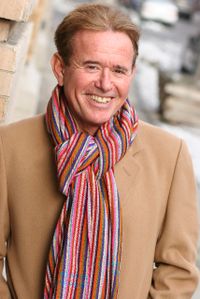 A White Crane Conversation
A White Crane Conversation
Gay Orpheus
Ray Warman Speaks with David Del Tredici
Generally recognized as the father of the Neo-Romantic movement in music, David Del Tredici – over a compositional career spanning five decades and (stronger than ever!) still counting – has received, among other awards, the Pulitzer Prize for Music, a Grammy nomination and an OUTMusic award. His music has been commissioned and performed by nearly every major American and European orchestral ensemble.
“Del Tredici,” said Aaron Copland, “is that rare find among composers — a creator with a truly original gift. I venture to say that his music is certain to make a lasting impression on the American musical scene. I know of no other composer of his generation who composes music of greater freshness and daring, or with more personality.”
Copland’s observations would be borne out in a way that, as a closeted elder composer, he could hardly have foreseen: The very daring Del Tredici would prove not only to be conspicuously Gay in his personal life, but also to enrich much of his music with Gay-focused texts, creating a “lasting impression” indeed. Most recently premiered was his setting for narrator and string quartet of James Broughton’s landmark poem, “Wondrous the Merge.”
Del Tredici was interviewed for us by White Crane contributor Ray Warman.
Ray: Gay Life … Queer Hosannas … Ballad in Lavender … My Favorite Penis Poems … David, your titles couldn’t be more exuberantly Gay! When did you first introduce Gay themes as subjects of your music, and how did that come about?
David: Long before I set explicitly Gay texts to music, I was for many years drawn to the poetry and stories of a man with a sexual secret, Lewis Carroll. In Final Alice, I was particularly explicit about Carroll. I set not only his nonsense poetry, but also the Victorian originals that he parodied – and the originals in fact speak of the love of a man for a girl named Alice. My music for the original poems depicted the forbidden – Carroll’s hidden desires – by using blatantly tonal harmony, which at that time had become a forbidden musical idiom. I was, in brief, drawn to forbidden things – forbidden sexual leanings – and in that sense, Carroll’s closeted love of little girls resonated well with my Gayness.
Ray: When were you first publicly identified as Gay?
David: When I was about 30, while an assistant professor at Harvard, I did a naked interview – something then the fashion for artistic people – for the magazine After Dark. I don’t think it was explicitly Gay, but with no mention of a wife or children, the message was there. For a mainstream publication at that time, right around Stonewall, it was as Gay as it got. We were still quite coy, then.
To that degree, I had always been “out,” in my personal life and with my friends, but – as with Aaron Copland and Samuel Barber – it was something not talked about publicly.
For me, the big change came in 1995, when I discovered the Body Electric School and attended one of their week-long workshops, where I was filled with pride at being Gay and wanting to be more out. I returned from the workshop to a residency at Yaddo, an artists’ retreat in upstate New York. I brought with me several poems by workshop members that celebrated being Gay and at Wildwood (where the workshop took place), and I set them to music as a kind of homesickness remedy and a way of continuing the connection while back at Yaddo. Those settings, which became the first two songs of Gay Life, were in fact the first Gay poetry that I set, and from then on I began to seek out, and to set, poetry celebrating sex. Take, for example, my Chana’s Story – not Gay, but very sexy. Beyond Chana Bloch, I met a lot of Gay poets at these art colonies and become interested in their work – Alfred Corn, John Kelly, Michael Klein, Jaime Manrique, Edward Field – and likewise, delving into the past, I found Gay poets like Rumi, Allen Ginsberg and Federico García Lorca. And I have a special place in my heart for the poetry of Antler, a kindred spirit.
Ray: How did James Broughton and his “Wondrous the Merge” enter the picture?
David: Again, my quartet, Wondrous the Merge, was Body-Electric-influenced: It was at Wildwood that I first heard James Broughton’s poem – an exultant embrace of his long-repressed sexuality –, and I was deeply touched by it. A commission for a string quartet came along, and I thought I might set “Wondrous” to be declaimed in collaboration with the string quartet – in other words, to compose a melodrama, like Richard Strauss’ Enoch Arden. Though I had combined singing and declamation in previous works (such as Dracula), I had never before made narrative the dominant element.
There’s an interesting serendipity associated with my completion of Wondrous: I went out for lunch and found my neighbor, the writer and artist Tobias Schneebaum, sitting nearby with someone. When Tobias introduced us (“David, do you know Joel Singer, who was James Broughton’s lover?”), I asked whether he was “the Joel” who figured in the poem. When told that he was, I remarked upon the coincidence of my just having set the story of his love affair with James. Joel moved in with Tobias, so our connection continued.
Ray: Wasn’t the Wondrous premiere somewhat controversial?
David: Yes, indeed! Wondrous had been commissioned for the Elements Quartet and was to be premiered by them at the 2003 Great Lakes Festival. The Festival had been told long before of the work’s Gay subject matter, but they didn’t see the text until the programs were to be printed, with the scheduled performance imminent. Even though the poem’s language was relatively mild, its subject proved disturbing for the straitlaced Festival: It’s the true-life story of a curmudgeonly, married, 61-year-old professor – securely packed into the conventional heteronormative mold – who is seduced by his 26-year-old hippie student! It defies “normal” expectations, as it takes the reluctant, protesting elder, not only into the younger man’s bed, but also out of his staid, “somnambulist” life. And so at the last minute, the Festival management said it couldn’t be done because there’d be “children present” and the “text” was unacceptable. (They avoided bringing the word “Gay” into their objections.) A last-minute compromise led to the quartet’s being performed without the narration, though with the aria on the word “wondrous.” I came to learn that the Festival was co-sponsored by three churches – Catholic, Protestant and Jewish – and that censorship remains alive and well in the US!
Ray: What other performance problems have you had with “Gay” titles and texts?
David: The San Francisco Symphony commissioned a big song-cycle that I called Gay Life – and, though it was San Francisco and the conductor was Michael Tilson Thomas, and they had already heard two or three of the songs –, there seemed, when it was premiered in May 2001, an inordinate amount of hostility coming my way as a result, and not just because of the music. The piece was Gayness-in-your-face, starting with the title – which, by the way, they asked me to change (and that speaks volumes!), but I declined.
Ray: Is it fair to conclude that Gay poets are more “out” in their work than Gay composers?
David: Indeed! In fact, poets like Allen Ginsberg, Antler and Edward Field have inspired me to keep up with them in terms of creating work suffused by a Gay sensibility. In contrast, I found the history of Gay composers in America bereft of any comparable Gay role-model. In England, of course, there was Benjamin Britten, with his operas Peter Grimes, Billy Budd and Death in Venice – but even they seem to be whispering their Gayness only by implication, and with no proud, bold declamation. Perhaps, of course, it was the times – but Ginsberg and Copland were contemporaries!
Ray: Tell us about your more recent “Gay” pieces.
David: Early December, 2008, there was premiered my perhaps-most-explicit song cycle, My Favorite Penis Poems, on the same Symphony Space program that also saw the long-delayed premiere, with narration, of Wondrous the Merge. With MFPP, I ran into the problem of finding singers willing to sing certain words and content on stage: Though they never point to particulars, many of them wind up saying “It’s not for me.” Rob Frankenberry rose to the occasion, however, and Melissa Fogarty likewise came around; they were troupers, taking marvelous relish in all the pieces, most especially in the naughtier words.
The last of the Penis Poems is Ginsberg’s “Please Master” – which is, if you will, a blow-by-blow sketch of an S/M scene. This poem also has a Body Electric connection for me: While assisting at the school’s S/M-focused workshop (called “Power, Surrender & Intimacy”), I and the other staff assistants would recite – and, through movement, express – “Please Master” as a bold celebration of the other side of desire, so it kind of got into my system.
Ray: S/M may no longer be the utterly taboo subject it once was, but it’s not on everyone’s playlist. How did it get onto yours?
David: I was in an exploratory mode, and very favorably disposed towards Body Electric’s offerings generally, when I first enrolled, as a participant, in the “Power, Surrender & Intimacy” workshop. When I took the workshop a second time, a year later, I met you! And, because S/M is your passion, you’ve had a lot to do with expanding my S/M horizons. In fact, you’ll remember, for the first two years of our relationship, you wanted me to take you everywhere – and I mean everywhere: down the street, into restaurants, onto airplanes! – on a leash and collar. Although at first I was troubled by this strange-seeming request, when I spoke with my therapist about it, she had the insight simply to ask, “How does it feel? Do you like him? Is it hurting anybody?” And so, I concluded it was okay, and it in fact became enjoyable…and thus, a ferocious top was born!
Ray: Spanking the keyboard, you’ve been celebrated as a ferocious pianist as well! Have S/M and other Gay subjects found their way into your piano-music?
David: A few years ago, a dear friend commissioned a piano piece from me. It wound up being so formidably difficult – a pianistic terror – that I decided to call it S/M Ballade. Being a pianist, after all, is a masochistic pursuit, don’t you think?
Ray: I suppose so, just as being a composer is a sadistic one!
David: Yes, we get to do all the imposition. It was a nice coincidence, too, that the commissioning pianist, Marc, has a partner named Seth – making them an “S/M” pair and giving the title a very welcome double-meaning.
I’m reminded of another piano ballad I’ve written – Ballad in Lavender. I wrote it for another friend, also a Gay man who in fact seemed quite proud of his Gayness. When I came to title the piece, he at first objected, rather mildly saying the word “Lavender” was unnecessary. But I wanted the word precisely because of its Gay associations, which I like to have in all my pieces nowadays. After considering lots of alternatives, I finally insisted on that title (it was, after all, my piece!). It so upset the commissioner that the title would contain a word even vaguely associated with being Gay that it ended our friendship and, even though he loved the music, he refused to play the piece. It was later premiered by a pianist who took no particular notice of the title and whose sexual orientation I don’t even know!
Ray: Is there such a thing as “Gay music”?
This is just an excerpt from this issue. We are a reader-supported journal and need you to subscribe to keep this conversation going. So to read more from this wonderful issue SUBSCRIBE to White Crane. Thanks!
For more White Crane, become a fan on Facebook and join us on Yahoogroups.
Subscribe today and keep the conversation going! Consider giving a gift subscription to
your friends who could use some wisdom! If there's an article listed
above that was not excerpted online, copies of this issue are available
for purchase. Contact us at editors@gaywisdom.org
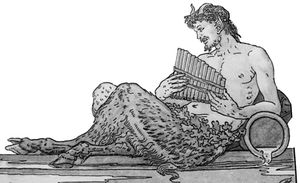
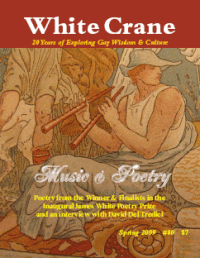

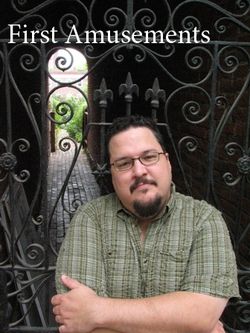
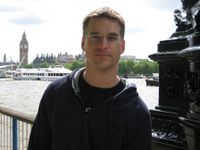
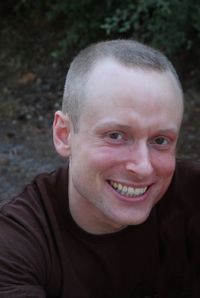

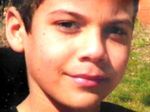
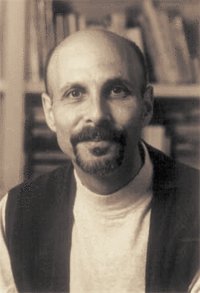 Animal, Vegetable, Mineral
Animal, Vegetable, Mineral